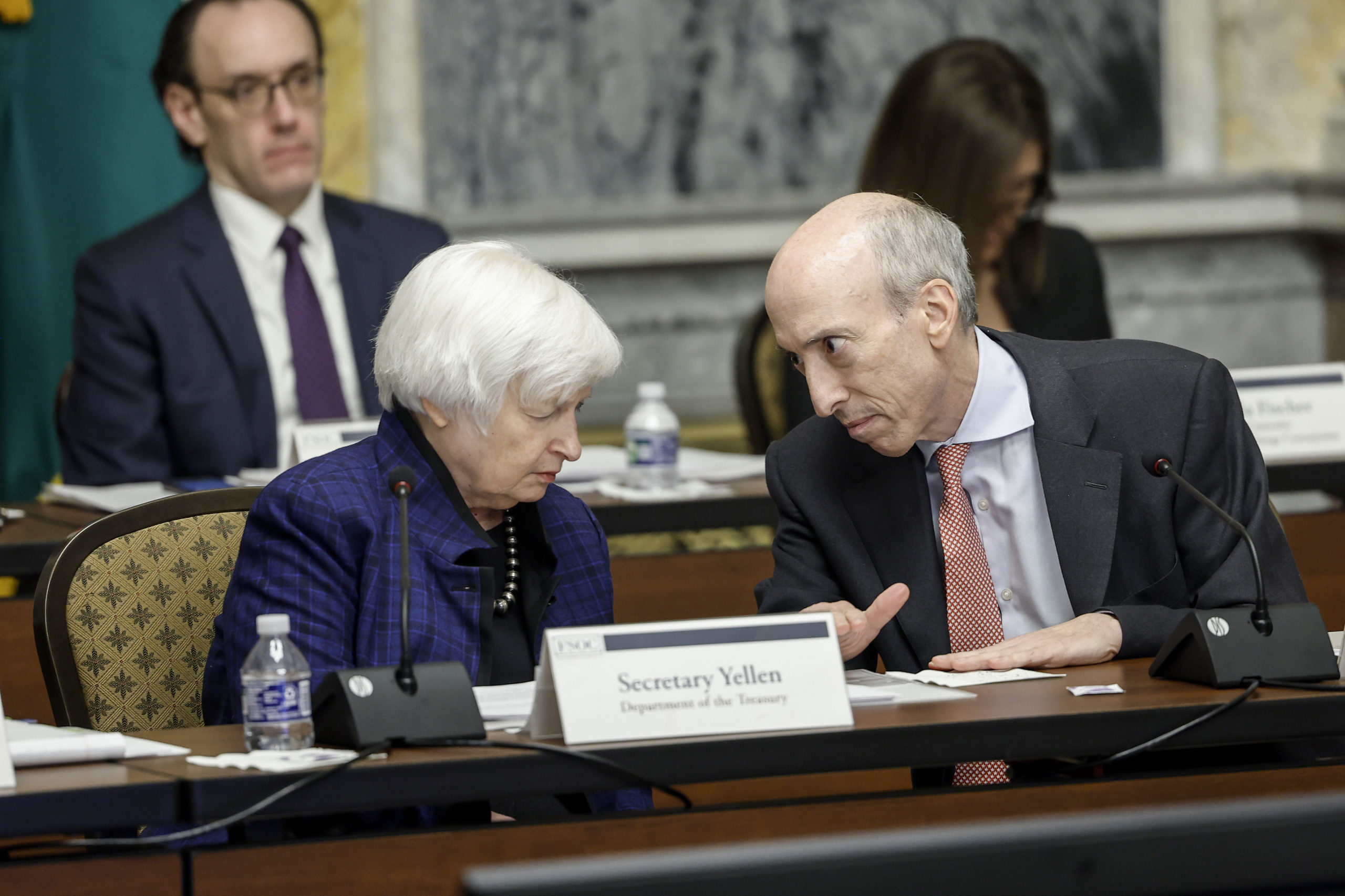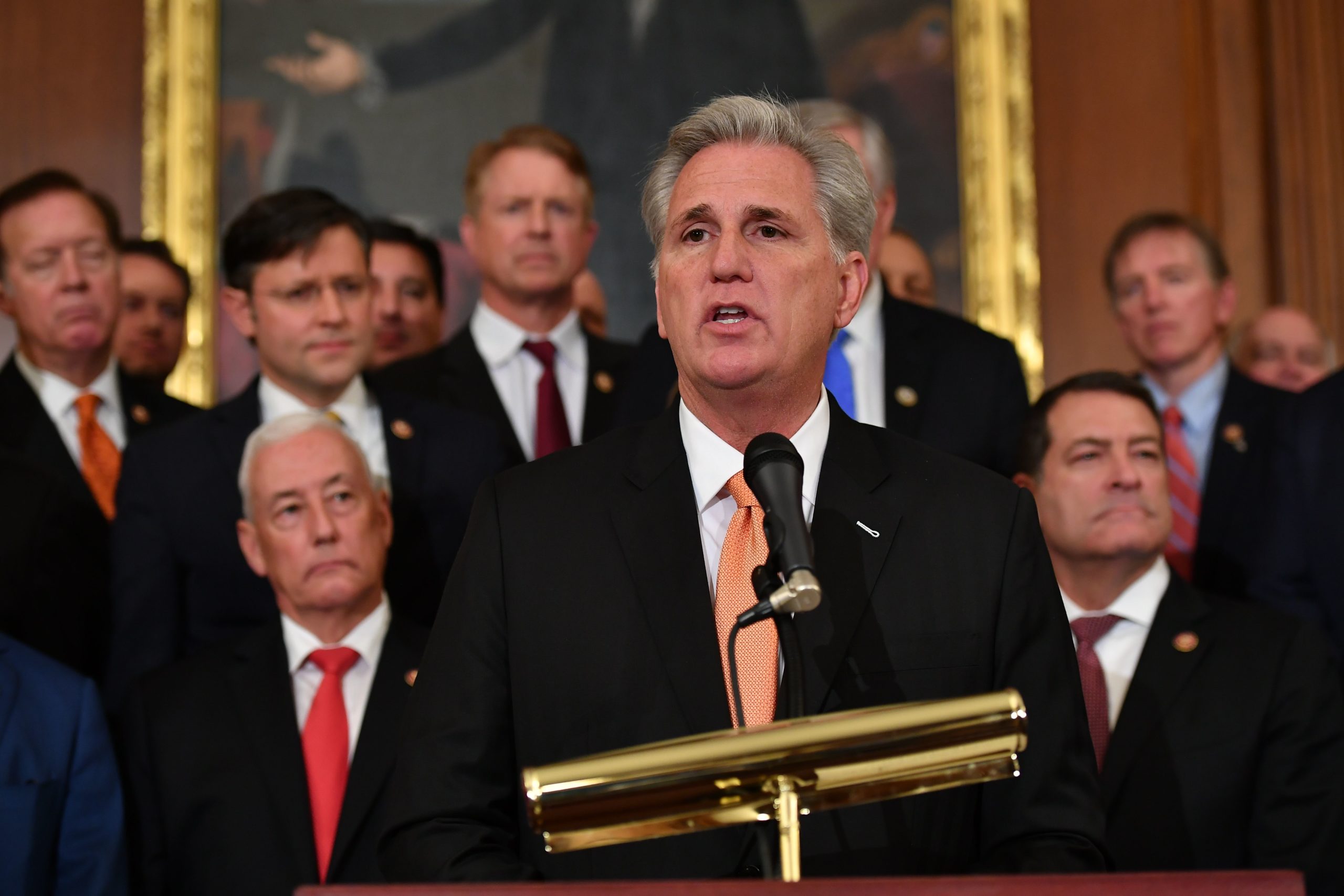The U.S. Chamber of Commerce will sue the Securities and Exchange Commission if it goes forward with a rule requiring companies to speculate about how climate change could impact their business models.
Some members of Congress and outside groups have trained heavy fire on the trade organization, long a fixture in GOP circles, over perceived support for left-wing social issues. Others have expressed frustration with the Chamber’s endorsement of over two dozen Democrats in the 2020 election cycle. Despite these objections, the business group remains in agreement with the GOP on a host of regulatory and legal issues, U.S. Chamber of Commerce Executive Vice President and Chief Policy Officer Neil Bradley told the Daily Caller in a recent interview.
Most notably, Bradley pledged to sue the SEC over the climate disclosure rule, should it ultimately go into effect.
“They didn’t follow APA [Administrative Procedures Act] rule-making. They were capricious in their rule-making. They’ve exceeded their statutory authority. They’ve been put on notice that they exceeded their statutory authority,” he explained in a preview of their legal strategy. “This fight is playing out right now in the comments. Everything that we’re doing, we’re doing with an eye towards” litigation.
Republicans are particularly worried about scope three of the proposed rule, which requires businesses to project the impact of future unknown climate disasters on their finances. (RELATED: ‘Unprecedented Level Of Federal Overreach’: 16 Governors Urge Biden To Rescind Costly Wall Street Climate Rules)
“The SEC should not be in the business of forcing companies to disclose made up non-material climate statistics,” Arkansas Rep. French Hill told the Daily Caller in July 2022, shortly after the SEC announced the rule.

WASHINGTON, DC – OCTOBER 03: U.S. Treasury Secretary Janet Yellen speaks with Securities and Exchange Commission (SEC) Chair Gary Gensler (R) during a meeting with the Treasury Department’s Financial Stability Oversight Council at the U.S. Treasury Department on October 03, 2022 in Washington, DC.
The Chamber’s critics argue that the organization has not taken a strong enough line against the SEC’s rule-making and perceived social leftward drift in big business more broadly.
“Their opposition is really about the burdensome nature of it. But their push-back, and this is true of everything with the Chamber, they pay lip service and don’t do anything about it,” Will Hild, executive director of Consumers’ Research, an organization that opposes ESG, told the Daily Caller.
Bradley explained that environmental concerns could be relevant for some businesses, using a Deer Park water bottle as an example. The Chamber’s comment on the proposed rule explained that it supports the disclosure of environmental issues when “material.” The Supreme Court has defined the term “material” in cases dating back to 1976 as information that a “reasonable shareholder” would find important.
“A material aspect of your business is your access to clean, potable water. In some people’s minds, that’s an environmental reporting risk factor, because it has to do with clean water,” Bradley said. “If for some reason their access to clean, potable water was threatened today, or diminished, they should be disclosing. That is a material risk to their business. Because if that were to occur, no more Deer Park.”
“We’re not opposed to disclosing to investors things related to the environment as long as its actually material to the business. Access to clean, potable water is completely immaterial if you’re a consulting company. It has no impact on their operations,” he added.
House Republicans have pledged to conduct aggressive oversight of the Biden administration’s regulatory agencies. In addition to the House Financial Services Committee’s ESG concerns, the Judiciary and Oversight committees are likely to look into Federal Trade Commission chairwoman Lina Khan’s regulatory expansions and extensive rule-making. The Chamber is also endorsing Wisconsin Rep. Bryan Steil’s Putting Investors First Act, which would limit the power of institutional proxy investors.
“What’s happening right now is radical in comparison to what has happened before,” Bradley said of the Biden administration’s regulatory posture across a variety of federal agencies. He name-checked the FTC and Consumer Financial Protection Bureau Chief Rohit Chopra.
Bradley outlined other areas of agreement with the GOP, noting permitting reform and border security. Democratic West Virginia Sen. Joe Manchin introduced legislation in the 117th Congress that would eliminate red tape surrounding energy projects, though his bill did not pass. Republican Texas Sen. Ted Cruz introduced bills on Tuesday with similar objectives.
“We think there’s some opportunities to get some important things done. Obviously we have a divided Congress politically, so in order to make law we’re going to have to get Republicans and Democrats to have some area of agreement,” he said.
Some Republicans have become wary of dealing with the Chamber, making engagement difficult. Speaker of the House Kevin McCarthy and Majority Leader Steve Scalise are refusing to meet with the group, Axios reported.
“Since becoming Speaker, McCarthy has not met with the Chamber of Commerce and does not have plans to,” McCarthy spokesman Mark Bednar told the Daily Caller.

House Minority Leader Kevin McCarthy, Republican of California, speaks during a press conference on the impeachment process in the Rayburn Room of the US Capitol in Washington, DC on October 31, 2019. (Photo by MANDEL NGAN/AFP via Getty Images)
“The Chamber made a decision during the Obama and Trump era to play both sides. Obviously any business has to be able to talk to both parties. I don’t think anyone criticizes them for that,” Hild added. “You’re not an ally. You might be a player. They want to be treated as an ally.”
A House Republican aide, granted anonymity to discuss internal dynamics, told the Daily Caller that GOP frustration stems in part from the Chamber’s endorsement of 30 Democrats in the 2020 election cycle. All of the winning members voted in favor of the $740 billion Inflation Reduction Act, which the national Chamber opposed.
“I would imagine they had a little bit of buyers’ remorse,” the aide said. “They got burned, frankly.”
The Chamber subsequently revamped its endorsement practices, not making approval contingent solely on scorecard performance. The group ultimately endorsed more than 70 Republicans and 14 Democrats during the 2022 cycle.
“Prior to this cycle, the endorsements had been a little more automatic,” Bradley said. “Based on the scorecard, if you got above 70%, you got it. For a lot of members, that consisted of a piece of paper that said ‘You have been endorsed by the U.S. Chamber of Commerce.'”
In 2022, “we made a decision to endorse fewer people overall, but focus on the people. So in addition to voting with us and championing business community priorities, individuals we had a strong working relationship with. By endorsing fewer people, we could make the endorsements more meaningful,” he added.
The GOP aide argued that extensive regulation and rising prices are pushing the Chamber back into the GOP fold.
“The SEC climate rule is a huge threat to their constituency. It’s totally outrageous. They’ve recognized that and that’s where they’re going to put their anchor in the ocean,” the aide explained. “Everything they’ve done has been really harmful to the constituency the Chamber serves.”


